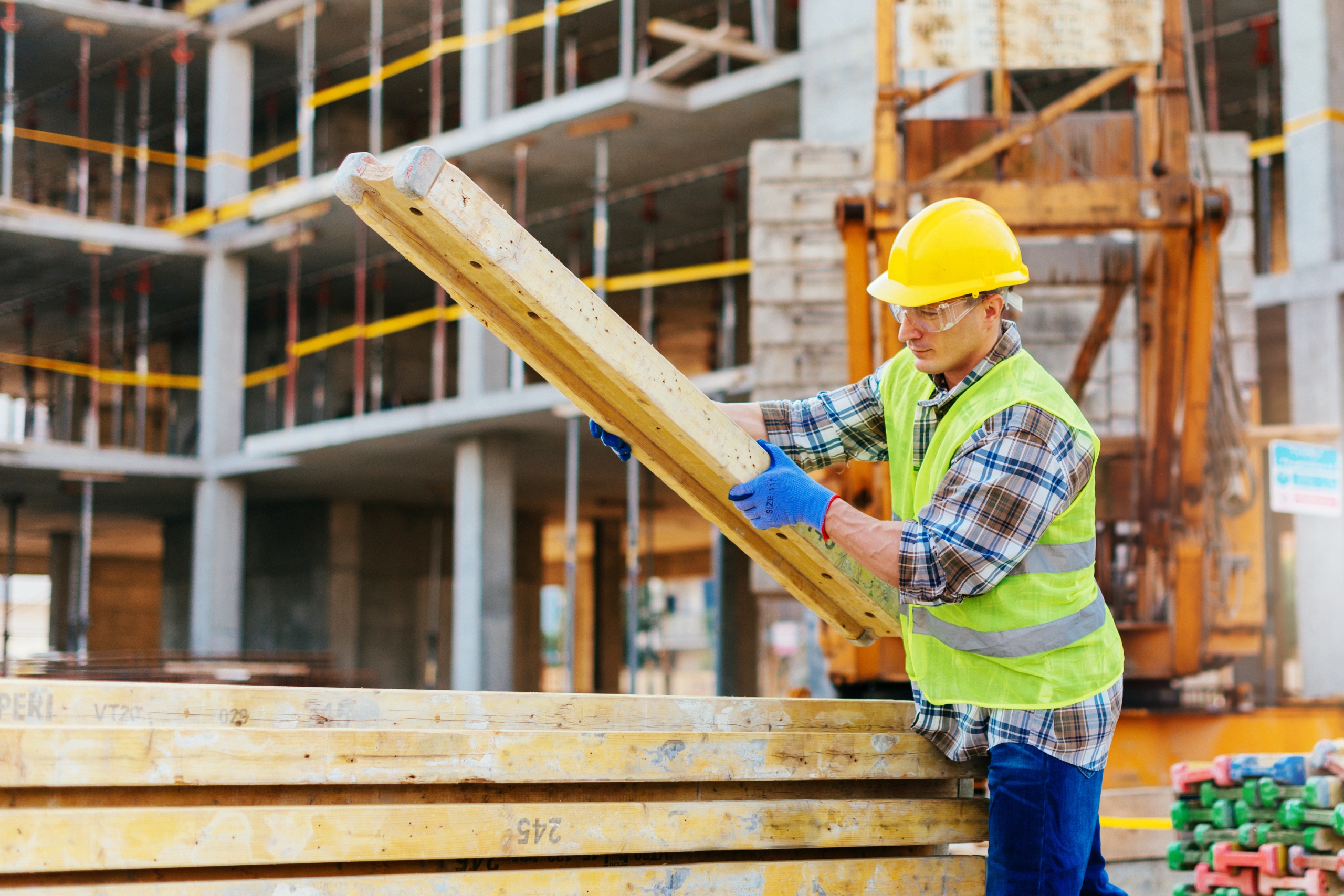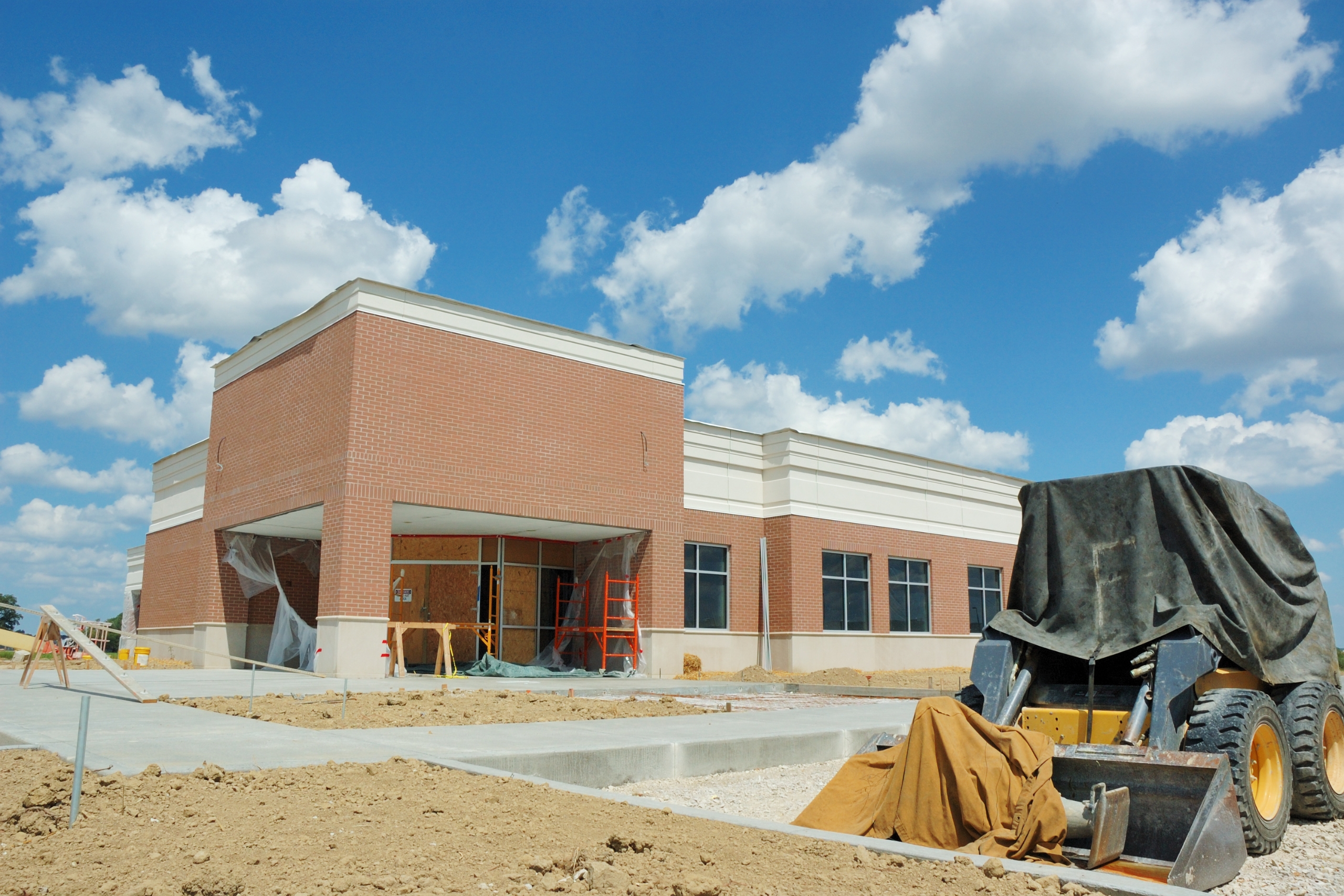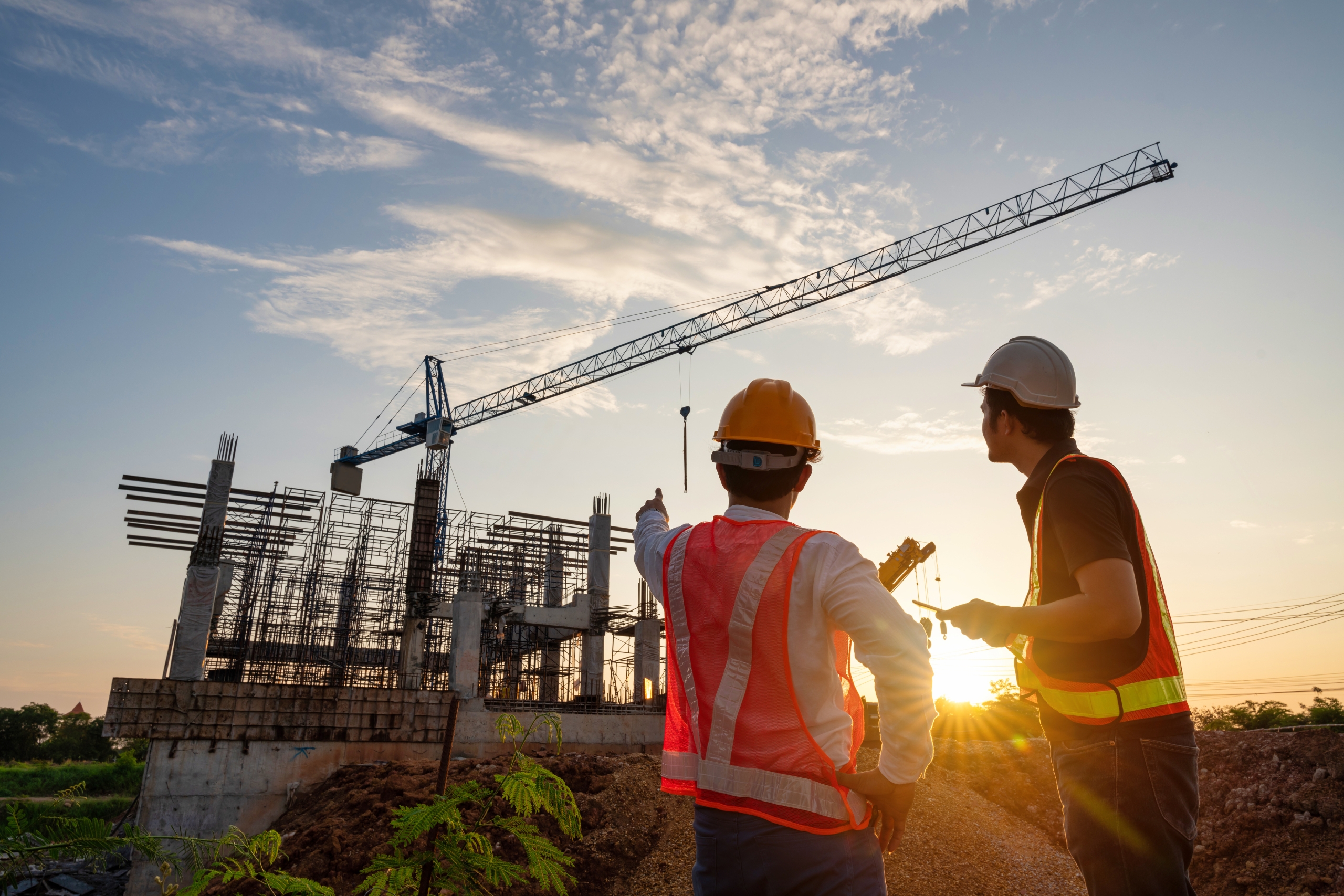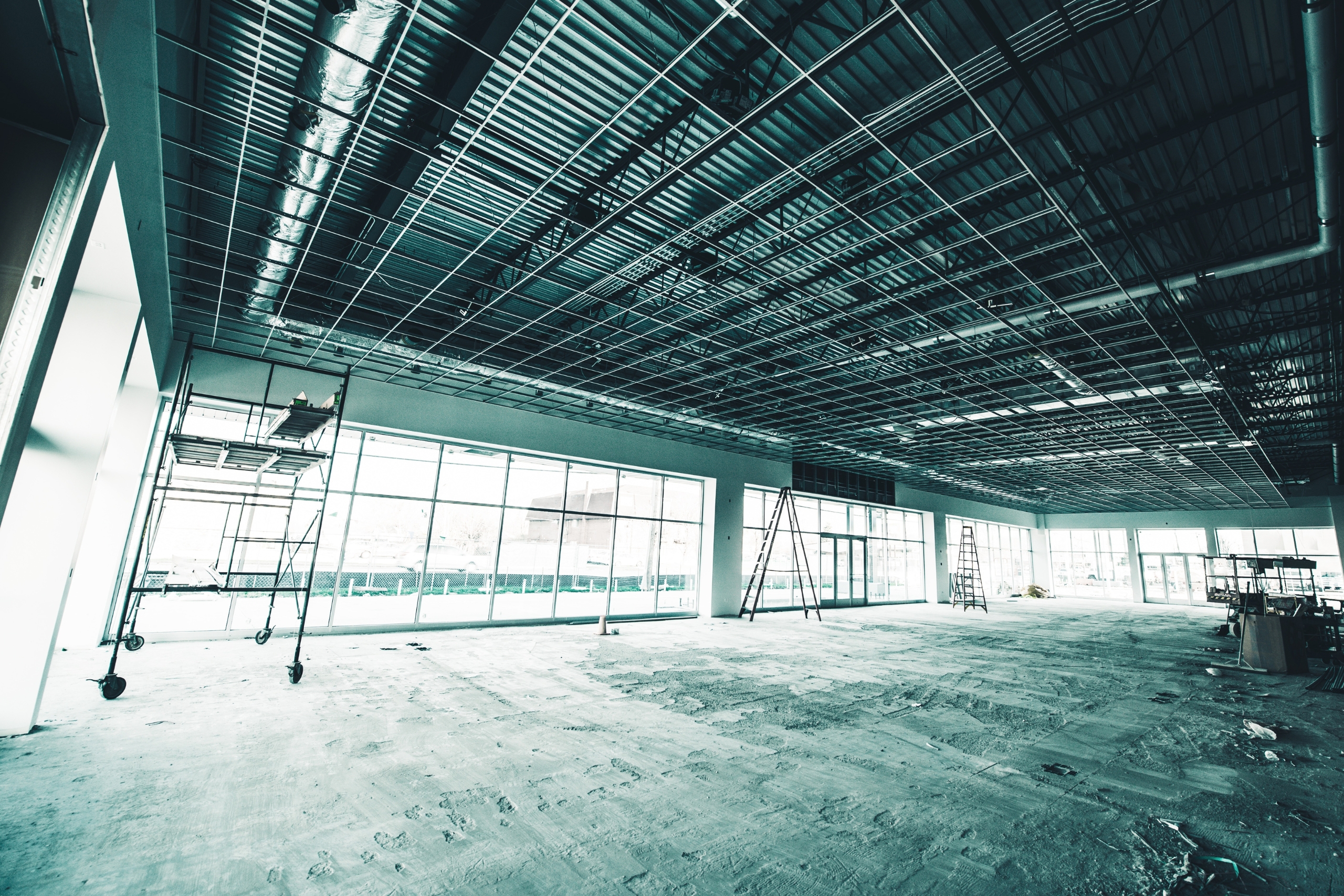Infrastructure construction in Omaha plays a significant role in shaping the city’s future, impacting both the community and business environment. This kind of construction involves creating essential facilities such as roads, bridges, and utilities that communities rely on daily. It contributes to economic growth and the overall quality of life, making it a priority for developers and city planners. As new businesses enter the Omaha market, the demand for updated and resilient infrastructure continues to grow. Addressing these needs requires careful planning and commitment to sustainable practices, ensuring long-lasting benefits for the region. Omaha’s unique construction landscape presents several challenges and opportunities for developers. Balancing the preservation of its rich history with modern development needs requires innovative approaches. Weather conditions can also influence construction timelines, making flexibility and strategic planning crucial. However, these challenges also present opportunities for innovation and growth within the industry. Embracing new technologies and building methods can help meet the demands of a growing population while maintaining the city’s charm. Collaborations between public and private sectors further enhance infrastructure projects, contributing to Omaha’s ongoing transformation into a vibrant and connected city. Understanding Omaha’s Infrastructure Needs Meeting the infrastructure needs of Omaha involves addressing several factors that ensure sustainable growth for the city. Key needs include improving transportation networks, upgrading utility systems, and expanding public facilities. Enhanced roadways and efficient public transportation are vital for reducing congestion and supporting economic activities. As Omaha continues to grow, upgrading utility services such as water, electricity, and telecommunications becomes increasingly important. This not only supports residential and commercial developments but also ensures energy efficiency and reliability. Several active infrastructure projects in Omaha focus on these crucial areas. For example, new roadways and bridges are under construction to improve connectivity between neighborhoods and business districts. Public transportation initiatives aim to provide convenient options for commuting, reducing reliance on personal vehicles. Additionally, efforts to modernize utility services address the increasing demand for sustainable energy solutions and reliable networks. Infrastructure development boosts Omaha’s growth by attracting businesses and residents, leading to job creation and increased economic activities. A strong infrastructure foundation supports various sectors, fostering innovation and investment. As Omaha evolves, careful consideration of its infrastructure needs remains essential for ensuring prosperity and improving the quality of life for all residents. By prioritizing these developments, the city lays the groundwork for a thriving future, ensuring that Omaha remains an appealing place to live, work, and visit. Key Steps in Infrastructure Construction Projects Starting an infrastructure project in Omaha involves several key steps to ensure everything runs smoothly. First up is initial planning and scope definition. This includes understanding the project requirements, setting realistic goals, and organizing timelines. It’s the stage where you sit down and map out what needs to be done, considering everything from budget to personnel needs. Next comes the design and engineering phase. Here, engineers and architects work together to create detailed blueprints and specifications. This step requires creativity balanced with technical expertise to ensure the final design meets functional requirements while being buildable within the given constraints. Once the design is locked in, it’s time to focus on obtaining permits and approvals. This step can be a bit tricky, as it requires navigating local regulations and ensuring compliance with all necessary codes. It’s crucial to have all the correct permits before breaking ground to avoid any legal issues or delays. During the construction phase, teams work on executing the plans. This involves everything from ground-breaking and laying foundations to the completion of the entire structure. Quality control is an ongoing process during construction, ensuring each element meets the required standards and specifications. The project wraps up with final inspections and project completion, marking the handover to its owners. Local Regulations and Compliance Understanding and following Omaha’s local building codes and regulations is a non-negotiable part of infrastructure projects. The city has specific requirements for different types of construction, each designed to promote safety and sustainability. It’s important to familiarize yourself with these guidelines early in the planning process to avoid any potential hiccups. Compliance ensures that all construction activities meet legal requirements, a critical factor in protecting investments and ensuring public safety. Failure to adhere to local regulations can lead to costly fines, construction rework, or worse, safety hazards. To keep everything on track, here are steps to ensure adherence to local regulations: – Start by consulting the latest building codes and legal requirements specific to your type of project. – Maintain open communication with local authorities and inspectors throughout the process. – Hire experienced professionals who understand Omaha’s regulatory landscape, making the entire project smoother. Choosing the Right Construction Partner Selecting the right construction partner can significantly influence the success of your project. Look for qualities such as experience, reliability, and strong communication skills. An ideal partner should have a proven track record with similar projects and a deep understanding of Omaha’s unique construction environment. Working with local firms offers notable advantages, like familiarity with local conditions and established relationships with regulatory bodies, which can help streamline the construction process. To choose the best partner, consider the following tips: – Evaluate their past projects and client reviews to gauge their performance. – Verify that they have the necessary licenses and certifications. – Ensure they understand your expectations and are transparent about costs and timelines. Enhancing Omaha’s Future with Strategic Infrastructure Projects To wrap up, undertaking infrastructure projects in Omaha is both a challenging and rewarding endeavor. From understanding local needs to navigating regulations, each step demands careful planning and execution. By focusing on the key aspects discussed, you set the stage for a successful venture that supports Omaha’s growth and development. Building a strong infrastructure not only facilitates current needs but also sets the foundation for future progression. It’s crucial to approach each project thoughtfully, involving skilled partners and adhering to the local guidelines. Together, these elements help create a vibrant, well-connected city proud of its infrastructure and ready to meet the challenges of tomorrow.To ensure your
Debunking Myths of Sustainable Construction
In the pursuit of building a better future, sustainable construction plays a crucial role. It’s about creating structures and communities that don’t just meet our needs today, but are also beneficial for future generations. Sustainable construction focuses on reducing environmental impact through innovative methods and materials. However, there are several misconceptions about what sustainable construction actually involves, especially in Omaha, a city where green building practices are gaining importance. Clearing up these misconceptions is important for widespread adoption of sustainable practices. Many people might misunderstand the costs and benefits, thinking that going green means sacrificing quality or style, or even paying a hefty price. Addressing these myths can open doors for more eco-friendly projects, ultimately helping Omaha lead the way in sustainable development. Common Misconceptions About Sustainable Construction “Sustainable Construction is Too Expensive” One of the biggest misconceptions about sustainable construction is that it always comes with a high cost. Many people assume that integrating green technologies and materials will exponentially increase project expenses. This belief often stems from the upfront costs of sustainable materials and systems, which might appear higher than traditional options. However, what tends to be overlooked is the long-term savings that sustainable construction can offer. For example, by using energy-efficient HVAC systems or installing solar panels, the initial investment can lead to reduced utility bills. Over time, these savings can offset the initial expenses, making sustainable choices more economical in the long run. Additionally, incentives and rebates for green building practices can further lower the overall cost. “Green Materials are Less Durable” Another commonly held belief is that eco-friendly materials don’t last as long as traditional ones. This can deter people from choosing sustainable options, fearing that their buildings might not withstand the test of time. Yet, advancements in technology have shown that many green materials are not just durable, but also outperform their conventional counterparts in certain areas. For instance, materials like recycled steel and engineered wood are known for their robustness and longevity. These materials can withstand harsh weather conditions, making them suitable for constructions in Omaha’s diverse climate. Using green materials can contribute to creating buildings that are both resilient and environmentally friendly. By debunking these myths and presenting factual information, the path to sustainable construction in Omaha becomes more accessible and appealing. Embracing long-term benefits and innovative technologies can revolutionize the way we think about building for the future. Sustainable Buildings Are Unattractive Some people think that sustainable buildings compromise on style and end up looking dull or unconventional. This myth arises from outdated designs and misconceptions about eco-friendly architecture. The truth is, sustainable buildings have come a long way and can be as stylish and modern as their traditional counterparts. Innovative architects are using eco-friendly materials and design techniques to create visually appealing structures that blend with their surroundings. Take, for instance, a recent library project in Omaha that incorporates green roofs and solar panels without sacrificing its sleek design. The building not only services the community but also serves as a testament to how aesthetics and sustainability align beautifully. Sustainable Construction Takes Longer to Complete Another common belief is that sustainable construction projects drag on longer because of the extra complexities involved. People assume that sourcing and installing eco-friendly materials takes more time, delaying the whole process. However, this doesn’t hold true with current advancements in construction technology. Modern techniques, such as prefabrication and modular construction, have revolutionized sustainable building by simplifying the process and reducing timelines. Projects are now completed efficiently while still adhering to green practices. Streamlined planning and construction methods ensure that projects are often done quicker than expected without compromising on sustainability goals. The Real Benefits of Sustainable Construction in Omaha Omaha stands to gain significantly from adopting sustainable construction practices. Beyond the obvious environmental perks, sustainable buildings also bring economic and social benefits to the community. By using energy-efficient systems, these buildings help reduce overall energy consumption, lowering operational costs and contributing to a healthier environment. Sustainable construction also supports local economies by encouraging the use of locally sourced materials, which helps reduce transportation emissions. Additionally, these eco-friendly projects create jobs and promote greener lifestyles among the residents. By enhancing both the urban landscape and the local economy, sustainable construction holds the potential to greatly improve Omaha’s community and environment. Embracing Sustainable Construction Practices Understanding the reality of sustainable construction helps dispel myths and encourages more people to consider eco-friendly building options. By focusing on the long-term benefits and breaking away from misconceptions, we pave the way for progressive and meaningful change in our communities. Encouraging the utilization of sustainable construction practices not only leads to cost savings and durability but also emphasizes the importance of community well-being. By valuing and adopting these practices, we can ensure a healthier, more sustainable future for Omaha and beyond. Ready to start enhancing the community and environment? Explore how sustainable construction in Omaha can make a lasting impact with the expertise of PC Construction. Consider reaching out to discuss your next project with us and discover the benefits of incorporating eco-friendly practices into your construction plans. Contact us today!
Debunking Office Building Construction Myths
Building an office can be an exciting but complicated task. Whether you’re revamping your current space or starting from scratch, numerous factors can affect the project’s success. How you plan and what you decide often depend on the myths or preconceived ideas you may have. Some might say that building an office in Omaha is always over budget, takes forever to construct, or requires loads of new tech. Understanding these myths can prevent misunderstandings and aid you in making the right choices. It’s important to address these myths to clear up any confusion and set realistic expectations. While construction in Omaha may come with its own set of challenges, being informed allows businesses to face them confidently. Let’s take a close look at some common myths about office building construction, examining their origins, and what the truth is behind them. Office Building Construction is Always Over Budget The notion that office construction projects are always over budget is widespread. This belief likely stems from past projects where costs spiraled out of control. While it’s true some projects experience budget issues, it’s not a foregone conclusion. Various factors can lead to these overruns, like unexpected site conditions or alterations in materials pricing. The key is to know what catches people off guard and plan accordingly. To stick to your budget, proper planning is indispensable. Here are some effective ways to manage costs: – Thoroughly research and select experienced contractors who understand your vision and budget limitations. – Establish clear project goals early on, and ensure everyone involved is on the same page. – Anticipate potential challenges and set aside contingency funds for unforeseen issues. There’s no denying that surprises may arise during construction, but careful planning means you can manage expenses more effectively. Hiring skilled professionals can help you anticipate potential problems and maintain financial control to ease the process. New Office Buildings Are Always Delayed Another myth is that new office building projects always face delays. While some delays are foreseeable, not every project is doomed to run behind schedule. Reasons for such delays vary and can include weather disruptions, supply chain issues, or even changes in design midway through the project. Modern construction management techniques are designed to anticipate and minimize delays. Here’s what you can do to keep your project on track: – Use project management software to coordinate tasks and timelines efficiently. – Communicate consistently with everyone involved to identify and resolve issues quickly. – Plan building phases according to seasonal patterns to mitigate weather-related disruptions. While the thought of delays can be concerning, they can be reduced with proper measures. Understanding construction management techniques and how to adapt them to your project enhances efficiency and ensures timeliness. The Latest Technology Is Not Necessary A common myth is that incorporating the latest technology into office building construction is an unnecessary luxury. Many people think that sticking to the basics is more cost-effective. However, modern technology can significantly benefit the construction process, offering improvements in various ways. From enhancing efficiency to boosting safety and reducing long-term expenses, technology plays a crucial role. Take, for example, Building Information Modeling (BIM). It allows architects and contractors to visualize projects from start to finish, spotting potential issues before they become costly problems. The use of drones for surveying can provide accurate site measurements quickly and safely. These tools streamline processes and contribute to a more effective use of resources. While the initial outlay for technology might seem high, the savings it generates in labor costs, time, and material wastes are valuable. By embracing the latest innovations, construction projects can run smoother and achieve better outcomes. Renovation Is Cheaper Than New Construction The idea that renovation is always more cost-effective than new construction is not always correct. While renovating can be advantageous in certain situations, it’s essential to weigh the pros and cons carefully. Older buildings might have hidden issues like outdated wiring or plumbing, which can lead to unforeseen expenses. These costs can quickly add up, making renovations more expensive than anticipated. Constructing a new building, on the other hand, offers the opportunity to incorporate energy-efficient systems and modern designs that meet the unique needs of a business right from the start. For instance, designing a building with energy-efficient windows or HVAC systems can reduce long-term operation costs. When deciding between renovation and new construction, consider factors such as future expansion, technological needs, and structural integrity. New construction sometimes ends up being the more practical solution, tailored specifically to your needs and avoiding the limitations of retrofitting an older building. Setting the Record Straight Debunking myths around office building construction equips you to make clearer and more informed decisions. Myths can create unnecessary apprehension or lead to choices that don’t best serve your needs. By understanding that not all projects are destined to be over budget or delayed, you can approach your construction endeavors more confidently. Knowing when to leverage technology or decide between renovating and building anew can make all the difference in achieving a successful project. Being well-informed allows you to navigate construction with clarity, ensuring your office space meets your expectations and requirements. If you’re considering an office building project in Omaha, understanding these aspects can help steer you in the right direction. Addressing common misconceptions removes barriers to effective decision-making, ultimately leading to a better outcome for your construction venture.Ready to explore your next project for office building construction in Omaha? Let PC Construction guide you through every step with expertise and dedication. Our team is committed to debunking myths and delivering results that align with your vision and budget. Contact us today to start building your ideal office space with confidence.
The Role of a General Contractor in Omaha
Embarking on a construction project can feel like a big puzzle, and having the right pieces in place is crucial. That’s where a general contractor steps in, playing a vital role in transforming your vision into reality. A general contractor is more than just a manager; they are the linchpin of the entire process. They coordinate with various experts, handle unexpected challenges, and ensure everything runs smoothly from start to finish. Imagine planning an event without a coordinator. You’d have to juggle caterers, decorators, and guest lists all on your own. Similarly, without a general contractor, managing a construction project would mean dealing with architects, electricians, and builders individually. This could lead to miscommunication and delays. A general contractor takes on this responsibility, allowing you to focus on the bigger picture while they handle the day-to-day tasks. Understanding the Role of a General Contractor A general contractor wears many hats during a construction project. Their primary job is to oversee the entire process, coordinating with different specialists to ensure that each phase aligns perfectly with the project’s goals. They begin by studying the project plans and discussing them with architects and owners. From there, they develop a timeline, budget, and plan to bring everything together. Here are some key roles they typically undertake: – Supervising the construction site and ensuring safety standards are met. – Hiring and managing subcontractors like carpenters, painters, and electricians. – Keeping track of the project’s progress and making adjustments to stay on schedule. – Coordinating with suppliers for materials and ensuring quality standards are met. In Omaha, having a local general contractor can be especially beneficial. They bring insights into local regulations and building codes, which can prevent potential roadblocks. This local expertise can be critical, ensuring compliance with city requirements while keeping the project on track. Working with a general contractor offers peace of mind as they handle the details and are the go-to problem solvers when unforeseen issues arise. By understanding their role, you can better appreciate how they contribute to a successful construction project. Benefits of Hiring a General Contractor in Omaha Securing a general contractor who is well-versed in the Omaha area provides a competitive edge. A local contractor understands the unique aspects of construction projects, such as specific climate considerations and regional building codes. This local knowledge helps to avoid potential missteps, ensuring smoother progress on the project. A general contractor in Omaha also streamlines the process, taking charge of planning, procurement, and coordination. They coordinate with local suppliers to get the best materials and negotiate rates that suit your budget. By managing these components efficiently, a contractor helps keep your project on track, reducing delays and unexpected costs. Consider these benefits when evaluating a general contractor in Omaha: – Local Expertise: Understands regional construction regulations and climate challenges. – Streamlined Coordination: Manages suppliers and subcontractors, saving time and effort. – Cost Efficiency: Negotiates favorable terms with local suppliers and contractors. This emphasis on local knowledge can make a huge difference in ensuring the success of your construction project, from inception to completion. How to Choose the Right General Contractor in Omaha Selecting the right contractor is a key step in guaranteeing a project’s success. Begin by assessing their experience and seeing if they have completed similar projects in Omaha. This will provide an indication of their capability to handle the local nuances of the construction job. Next, consider their communication style and approach to project management. A reliable contractor should maintain open lines of communication, giving regular updates and being available to answer any concerns you might have. Key factors to consider include: 1. Experience: Look for a history of successfully completed projects in Omaha. 2. Reputation: Check reviews and ask for references to gauge client satisfaction. 3. Communication: Ensure they offer clear and consistent updates throughout the project. These considerations will guide you to a contractor who can deliver results while maintaining quality and efficiency. Common Challenges and How a General Contractor Helps Overcome Them Construction projects, while rewarding, can also present various challenges. Delays due to weather conditions or supply chain issues are common. A general contractor in Omaha can mitigate these problems by implementing backup plans and drawing on local connections to source materials quickly. For instance, unexpected site issues might arise, such as discovering poor soil conditions that require extra work. A competent contractor will recognize the issue promptly and coordinate a solution that minimizes disruption and maintains the schedule. Some typical challenges include: – Weather Delays: Managed by employing flexible schedules and contingency plans. – Supply Chain Issues: Addressed by leveraging local networks for alternative sourcing. – Site Challenges: Handled through proactive problem-solving and quick adjustments. These capabilities make a general contractor indispensable, ensuring that obstacles are overcome smoothly and efficiently. Choosing the right partner for your construction project is a significant decision that impacts both process and outcome. If you’re seeking a reliable team with local expertise, PC Construction is here to help. Learn more about how a general contractor in Omaha can streamline your project and ensure a successful outcome.
Finding the Best Remodeling Contractors
Finding the right remodeling contractor is like ensuring a safe and sound bridge over a wide river; the wrong choice could lead to a bumpy ride or worse, a disaster. In a city like Omaha, where construction standards are high and project details must be perfect, it’s even more vital to find a contractor you can rely on. Choosing wisely means more than just picking someone who can hammer a nail straight. It involves finding a partner who understands your vision and can translate that into a reality while staying within budget and on schedule. With the right remodeling contractor, your project can become a success story rather than a cautionary tale. Omaha, NE, continues to grow and evolve, and with that growth comes the need for quality remodeling work in both residential and commercial spaces. Whether you’re updating a century-old home or modernizing an office space, a reliable contractor can make a significant difference. But with so many options available, how do you find the one that fits your needs? In this guide, we’ll explore ways to identify reliable remodeling contractors in Omaha, providing practical advice and actionable steps. Research and Recommendations Starting your search for a reliable remodeling contractor can feel overwhelming, but it’s manageable with a systematic approach. A great place to start is by gathering referrals from people you trust. Friends, family, and neighbors who have had similar work done can provide insights based on their own experiences. They’ll likely be honest about their satisfaction level or any challenges they faced, giving you a clearer picture of what to expect. Next, delve into online resources to expand your research. Look for contractors with positive reviews on trusted platforms where users discuss their experiences in detail. But remember, reviews should be taken with caution—consider both the good and the bad to form a balanced view. Lists of top-rated contractors in Omaha might give you an idea of who to consider but verify each option independently. Here’s how to ground your search: – Talk to friends and neighbors who’ve completed similar projects. Their firsthand feedback is invaluable. – Use online directories and review sites to find contractors with consistently high ratings. – Look for pictures of completed projects. Visual evidence can often speak louder than words. All this research lays the groundwork for identifying the right contractors. It helps narrow down your list to those who have a proven track record in the type of work you need done. Next up, verifying credentials and experience will further refine your choices. Verify Credentials and Experience Once you’ve narrowed down your list through recommendations and online research, the next step involves verifying the credentials and experience of potential contractors. A reliable contractor should be fully licensed and insured. This not only protects you but also ensures the contractor has met state and local requirements. Insurance is crucial because it covers any damages or injuries that might occur during the remodeling process. Ask to see copies of the contractor’s license and insurance certificates to verify they’re up to date. Experience is another key factor to consider. Find out how long the contractor has been in business and the types of projects they usually handle. A contractor with years of experience is likely to have encountered various challenges and developed effective solutions. This expertise can be invaluable, particularly for complex remodeling projects. One way to gauge experience is to request a portfolio of past work. Look for projects similar to yours and assess the quality of the work. Remember these points when checking credentials and experience: – Confirm the contractor’s licenses and ensure they are current. – Verify insurance coverage to avoid liability issues. – Check their portfolio for similar projects and quality craftsmanship. Request Detailed Quotes After verifying credentials, it’s essential to request detailed quotes from several contractors. These quotes should provide more than just a total cost. They should include an itemized breakdown of materials, labor, and any additional expenses, giving you a clear view of where your money is going. This transparency allows you to compare bids accurately and identify any significant cost variations. When evaluating quotes, pay close attention to the timeline. Understanding the project schedule helps set expectations and ensures the contractor can meet your deadlines. Look for any potential delays or provisions for unexpected circumstances. A contractor who’s upfront about possible adjustments in time and cost is usually more trustworthy. Here’s what you should consider when reviewing quotes: 1. Ensure quotes are detailed and itemized. 2. Compare costs for materials, labor, and additional fees. 3. Review the proposed timeline and discuss any concerns. Communication and References Open and effective communication is key to a successful remodeling project. The contractor you choose should be willing to discuss all aspects of the project, listen to your needs, and provide constructive feedback. A contractor who communicates well can prevent misunderstandings and ensure that everyone is on the same page. Don’t hesitate to ask potential contractors for references. Speaking with past clients provides insights into the contractor’s reliability and quality of work. Ask about their overall experience, adherence to timelines, and how issues were handled. This kind of firsthand information is invaluable in making your final decision. Consider these methods to judge a contractor’s communication and reliability: – Ensure they are responsive to your questions. – Check references to learn about prior customer satisfaction. – Discuss communication preferences to ensure they align with yours. Wrap-Up Your Search for the Best Remodeling Contractors Choosing the right remodeling contractor in Omaha requires diligent research, careful verification, and clear communication. By focusing on these elements, you stand a better chance of finding a contractor who meets your needs and expectations. Reliable contractors not only bring your vision to life but also provide peace of mind throughout the process. Remember that thorough research and due diligence can lead to successful, stress-free remodeling projects, enhancing your space according to your goals.Wrap up your efforts to find the right remodeling contractors in Omaha by reaching






